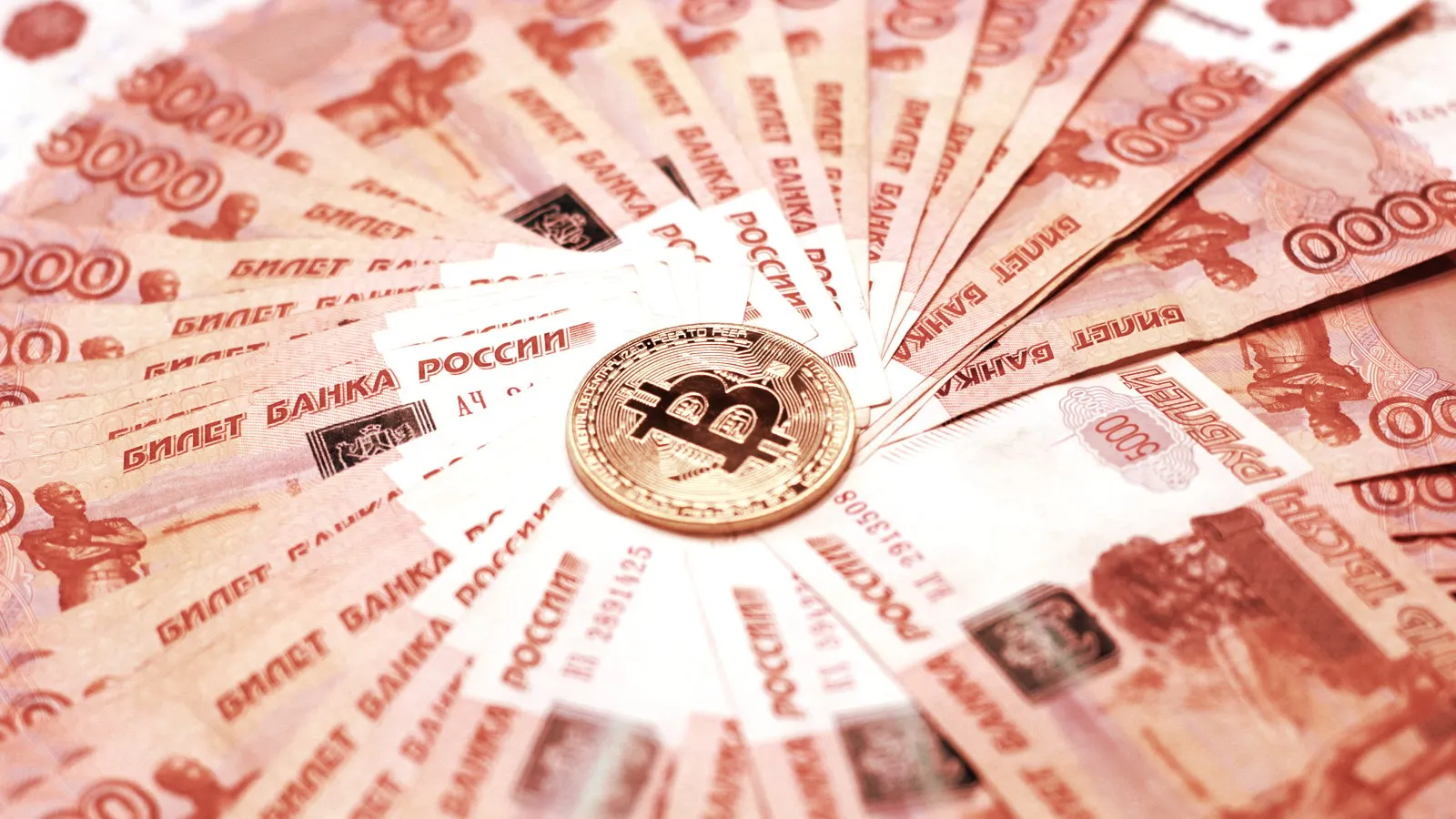The Ukrainian government made an "official request" to eight crypto exchanges to halt support for the Russian ruble, the Ukrainian government told Decrypt via email yesterday.
"Yesterday the Ministry of Digital Transformation of Ukraine made an official request to Coinbase, Binance, Huobi, KuCoin, Bybit, Gate.io, Whitebit, and Kuna asking to halt support for the Russian ruble, ruble spot pairs and fiat getaways, including Russian payment systems," Yulia Parkhomenko, Head of the Department of Development and Financial Monitoring of the Virtual Assets Market, told Decrypt.
Parkhomenko, who serves in the Ministry of Digital Transformation, also echoed the Ukrainian Vice Prime Minister Mykhailo Fedorov in pushing for the addresses of all Russian customers to be sabotaged.
"We firmly believe that it's crucial to block not only the addresses of crypto wallets linked to Russian and Belarusian politicians, but also to sabotage all Russian customers in order to prevent evading sanctions," Parkhomenko said.
Decrypt has reached out to each crypto exchange cited in Parkhomenko's email. We have thus far received a response from Whitebit.
"Procedures for checking for sanctions lists have been introduced, trading activities with RUB have been closed, and registration of users from the countries of the Russian Federation and the Republic of Belarus has been suspended," Whitebit told Decrypt in an email.
Crypto exchanges respond
On February 27, 2022—three days after Russia invaded Ukraine—Ukrainian Vice Prime Minister Fedorov tweeted his country's first request to crypto exchanges to take action.
"I'm asking all major crypto exchanges to block addresses of Russian users," his tweet read.
Coinbase, Kraken, and Binance have all publicly declined Fedorov's request.
A spokesperson for Coinbase told Decrypt two days ago that "a unilateral and total ban would punish ordinary Russian citizens who are enduring historic currency destabilization as a result of their government's aggression against a democratic neighbor."
Kraken CEO, Jesse Powell, tweeted that "The People's Money is an exit strategy for humans, a weapon for peace, not war."
5/6 Sometimes the hardest thing about having power is knowing when not to use it. Our mission is better served by focusing on individual needs above those of any government or political faction. The People's Money is an exit strategy for humans, a weapon for peace, not for war.
— Jesse Powell (@jespow) February 28, 2022
A Binance spokesperson told CNBC on Monday that "crypto is meant to provide greater financial freedom for people across the globe. To unilaterally decide to ban people's access to their crypto would fly in the face of the reason why crypto exists."
In a recent interview with the BBC, Binance CEO Changpeng Zhao ("CZ") was further pressed on the question of sanctions.
The CEO was asked what Binance was doing for those who had already been sanctioned. He said those individuals "will not be able to use [Binance's] services" and that the exchange would freeze their funds.
When asked how many accounts Binance had frozen in the last week, Zhao said he did not know.
"Given the importance of this, do you not think that you should know how many of those Russian business people who are on the sanction list are actually now not using your platform?" Zhao was also asked.
He responded by saying, "I personally don't need to know, what I do know is those guys are not using our platforms."
Potential further sanctions
Cryptocurrency exchanges have said that—to date—there are no legal grounds to ban all Russian users from crypto platforms.
However, that soon may change.
The U.S. Treasury's Office of Foreign Assets Control is set to issue new rules that aim to restrict "deceptive or structured transactions or dealings to circumvent any United States sanctions, including through the use of digital currencies or assets or the use of physical assets."
These new regulations are set to build on an existing Biden administration executive order designed to stifle illicit Russian activity.
The rules are available in draft form here and will be published in the Federal Register later today.

